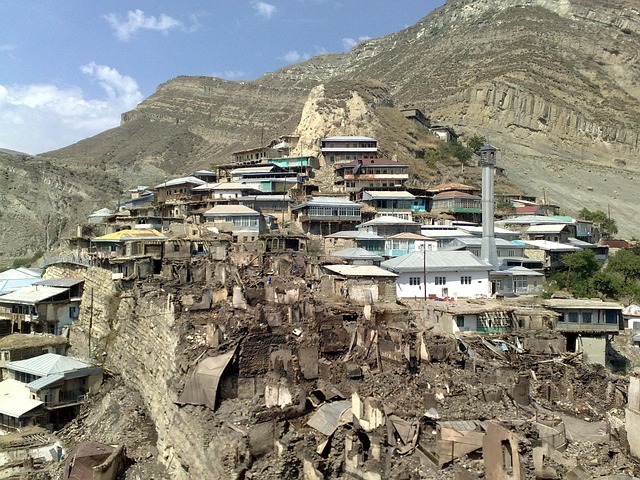Selling a fire-damaged property in Chicago requires understanding and adhering to stringent housing regulations designed for fair, safe living conditions. Homeowners must assess damage, consult professionals, obtain permits, and address structural integrity & safety concerns. Marketing strategies highlighting reconstruction efforts can mitigate buyer concerns. Local authorities provide resources, grants, and financial aid for owners selling fire-damaged homes in Chicago. "Sell my fire damaged home Chicago" services are key to navigating this process successfully.
Navigating Chicago’s housing regulations can be complex, especially when it comes to selling a fire-damaged property. This comprehensive guide delves into the legal considerations and steps involved in selling a fire-damaged home in Chicago. We explore building and safety codes that homeowners must adhere to and provide valuable resources for those facing housing regulations. If you’re ready to sell your fire-damaged home in Chicago, this is your go-to resource for understanding and complying with local requirements.
- Understanding Chicago's Housing Regulations: A Comprehensive Overview
- Selling a Fire-Damaged Property: Legal Considerations and Steps Involved
- Building and Safety Codes: What Homeowners Need to Know in Chicago
- Resources and Assistance for Chicago Homeowners Facing Housing Regulations
Understanding Chicago's Housing Regulations: A Comprehensive Overview

Chicago’s housing regulations are designed to ensure fair and safe housing practices for its residents. When considering selling a fire-damaged home in Chicago, understanding these regulations is crucial. The city has strict guidelines for property maintenance, including requirements for repairing or replacing damaged structures after a fire.
These regulations cover various aspects, from structural integrity to health and safety standards. Homeowners must adhere to specific codes when repairing or rehabilitating their properties, especially in cases of fire damage. This includes proper inspection, approval, and compliance with building permits. By adhering to these guidelines, Chicago residents can navigate the process of selling their fire-damaged homes while ensuring a smooth transition for prospective buyers.
Selling a Fire-Damaged Property: Legal Considerations and Steps Involved

Selling a fire-damaged property in Chicago involves navigating a series of legal considerations and steps, especially given the city’s stringent building codes and safety regulations. After a fire, homeowners must first assess the extent of damage and consult with a professional to determine if the structure can be repaired or if demolition is necessary. This initial step is crucial as it influences subsequent actions and potential costs.
Once determined that the property is saleable, either through repairs or demolition, homeowners should consult with a real estate attorney specializing in Chicago housing regulations. The attorney will guide them through the legal process of obtaining the necessary permits for selling a fire-damaged home, ensuring compliance with local ordinances. This includes filing insurance claims and documenting repair or reconstruction efforts, which can be essential when marketing the property to potential buyers who may have concerns about its history.
Building and Safety Codes: What Homeowners Need to Know in Chicago

In Chicago, adhering to strict building and safety codes is paramount for homeowners, especially when considering selling a fire-damaged property. These regulations are designed to ensure structural integrity, minimize hazards, and maintain the city’s overall quality of life. Before proceeding with any renovation or sale, it’s crucial to familiarize yourself with these guidelines. The City of Chicago offers comprehensive resources outlining specific requirements for various types of structures, including residential buildings.
When dealing with a fire-damaged home in Chicago, there are additional considerations. Property owners must address not only the visible repairs but also hidden damage that might have been caused by smoke and water. Professional assessment is recommended to identify potential issues like charred insulation, compromised electrical systems, or mold growth behind walls. Once these safety concerns are addressed, homeowners can confidently navigate the process of selling their fire-damaged property in Chicago, ensuring compliance with local regulations and attracting potential buyers who prioritize a safe living environment.
Resources and Assistance for Chicago Homeowners Facing Housing Regulations

Chicago homeowners facing housing regulations, especially after natural disasters like fires, can access numerous resources and assistance programs to navigate the process. The city offers guidance on rebuilding and repairing homes, ensuring compliance with local building codes and safety standards. For those looking to sell their fire-damaged properties, there are specialized services available. Organizations dedicated to helping residents recover from disasters provide support, offering advice on how to navigate the insurance claims process and connect homeowners with reputable contractors for necessary repairs.
These initiatives aim to make the transition smoother, whether homeowners decide to rebuild or sell. Local authorities also facilitate communication between affected residents and relevant agencies, ensuring they receive up-to-date information about available grants, tax incentives, and other forms of financial assistance tailored to their specific needs, including those looking to sell their fire-damaged homes in Chicago.
Chicago’s housing regulations, encompassing selling fire-damaged properties, building safety codes, and available resources, are designed to ensure community safety and fairness. For those looking to navigate these processes, understanding these regulations is key. If you’re considering selling your fire-damaged home in Chicago, consult legal experts and utilize the resources provided to ensure compliance. By staying informed and utilizing available assistance, you can confidently move forward with your plans.






